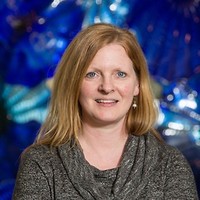Page 150 • (3,667 results in 0.034 seconds)
-
N. Justice Associate Professor of Mathematics Phone: 253-535-7446 Email: njustice@plu.edu Office Location: Morken Center for Learning & Technology Status:On Sabbatical Website: https://sites.google.com/plu.edu/njustice/home
-
national security interests of the United States. The region includes China, which is rapidly assuming prominence on the global stage. Rare are the days that go by without at least one news story on China. Given PLU’s Chinese language studies, its China summer Service Learning program, as well as other international programs sponsored by the Wang center, I thought I would devote a few minutes to this most fascinating country. For the past 20 years, China’s GDP has grown by an average of 9.0% per year
-
university-sponsored international travel policy . Per policy guidelines, PLU will not fund travel to high risk areas. (http://travel.state.gov/). The Wang Center will screen each applicant for eligibility as part of the application process, prior to proposals being reviewed by the Global Education. StudentsFacultyStudent-Faculty TeamsStudentsProposals are accepted from full-time PLU undergraduates and graduate students for advanced research and experiential learning. The grant monies are available for
-
course is coordinated by PLU’s Wang Center for Global and Community Engaged Education and co-facilitated by Dr. Teresa Ciabattari, Interim Dean of Interdisciplinary Studies, and Dr. Tamara R. Williams, Executive Director for the Wang Center for Global and Community Engaged Education. See below for registration information. LEARNING OBJECTIVES Upon completion of the course, participants will be able to: Identify and describe at least three distinct disciplinary approaches to the COVID-19 pandemic
-
course is coordinated by PLU’s Wang Center for Global and Community Engaged Education and co-facilitated by Dr. Teresa Ciabattari, Interim Dean of Interdisciplinary Studies, and Dr. Tamara R. Williams, Executive Director for the Wang Center for Global and Community Engaged Education. See below for registration information. LEARNING OBJECTIVES Upon completion of the course, participants will be able to: Identify and describe at least three distinct disciplinary approaches to the COVID-19 pandemic
-

Kathy Engle Assistant Director of Lifelong Learning & Events She/Her Phone: 253-535-7417 Email: engle@plu.edu Office Location:Nesvig Alumni Center Status:Working Hybrid Employed: 10 Years Professional Biography Personal Education B.A., Interior Design, Western Washington University Areas of Emphasis or Expertise Alumni Relations Event Planning Lifelong Learning Alumni Travel Responsibilities Kathy is responsible for creating, marketing, and executing meaningful events and opportunities for
-
progressive deterioration in mental or emotional functioning that requires intensive interventions. Documentation for emotional support animals. Couples and family counseling. Alcohol and other drug abuse assessments. Eating disorder assessment and treatment. Neuropsychological evaluations or testing for learning disabilities. Formal disability assessments. Court ordered or mandated treatment. Fitness for duty or work evaluations. When Referrals to the Community May Be SuggestedStudents may be referred to
-
they’re going. Like the frequent customer at his or her favorite restaurant, instructors can intuitively cruise to where they have been so many times before. But for students maneuvering to new destinations, the location and the directions need to be unambiguous. The beginning of the semester is right around the corner, but now is still a good time to review learning goals and objectives listed on your syllabi. If written properly, goals and objectives should underlie every instructional decision and
-
The Office of Institutional EffectivenessThe Office of Institutional Effectiveness establishes the infrastructure necessary to monitor and track our achievement of mission fulfillment. The work of the office will drive a systematic and sustained institutional commitment toward developing a culture of constructive, self-reflective monitoring and evaluation. This culture of monitoring and evaluation reflects our commitments as a learning community, where mutual accountability and sustainable
-
Clinical Evaluations All students will receive feedback (written and oral; formative and summative) from faculty regarding their performance during the clinical rotation (Clinical Evaluation Tool and Criteria for Satisfactory Performance) found in your Learning Management System. The length of a clinical rotation will dictate the frequency of formal evaluation sessions. In all clinicals, students are evaluated at least twice – at the middle and end of the course. Students should be aware that
Do you have any feedback for us? If so, feel free to use our Feedback Form.


